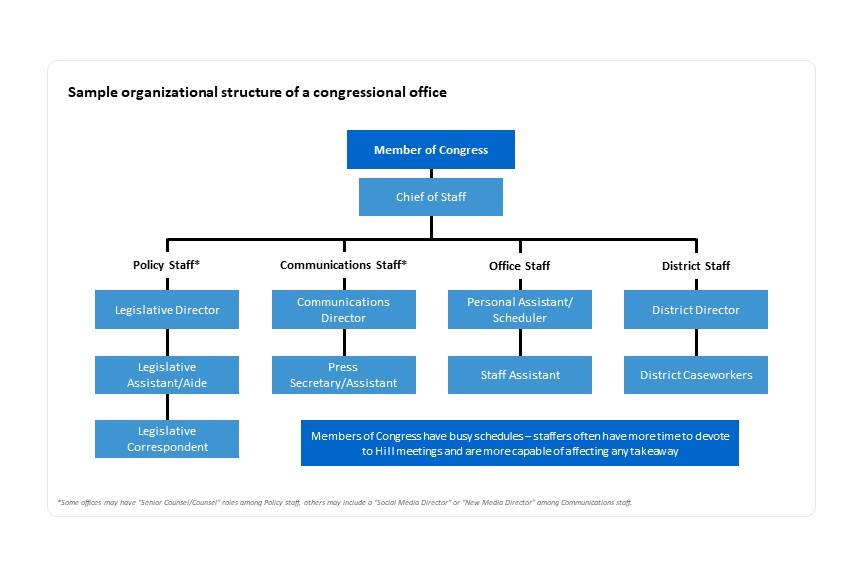

- Member Home
- Advocacy Guide Home
- IFAPAC
- Grassroots




Each congressional office is unique, but below is a sample of the organization structure you can expect.
 Capitol Hill staff often take more meetings and have more time to speak with constituents. Below will give you an idea of what to expect from each role.
Capitol Hill staff often take more meetings and have more time to speak with constituents. Below will give you an idea of what to expect from each role.| STAFF POSITION | ROLE and EXPERIENCE |
|---|---|
| Chief of Staff (Senior Administrative and Political Aide) |
The Chief of Staff often represents the Member at meetings and official functions. They run the office and hires and manages the staff both in Washington and in the district or state. All staff reports to the Chief of Staff, including the scheduling, legislative, and press office operations. Visitors may not realize how often chiefs communicate with a member; the tight bond means that chiefs are often delegated to speak for the member to constituents. |
| Legislative Director (LD) (Senior Legislative Aide) |
They manage policy issues and staff of legislative assistants and aides. LDs tend to be specialists in the policies of the committees on which the member serves; they may focus less on other areas. |
| Legislative Assistant (LA) |
Generally, they specialize in one or more subject areas, which are of critical importance to constituents. Thus, the LA knows the strategy as well as the content of any legislative matter. LAs tend to be young; their average age is under 29. |
|
Staff Assistant (Also Legislative Coorespondents (LCs)) |
General term for a congressional aide. A Staff Assistant's duty may be administrative (receptionist, constituent mail), legislative, press, or in the field of casework. LCs/SAs tend to be younger than LAs, often recent grads; LCs/SAs may join in meetings as a junior staffer or notetaker. |
| Committee Staff |
Represent the Member's interest on the two or three committees on which they serve. They know the details of any legislative issue, current or in development, and are responsible for hearings and the considerable paperwork generated by the process. |